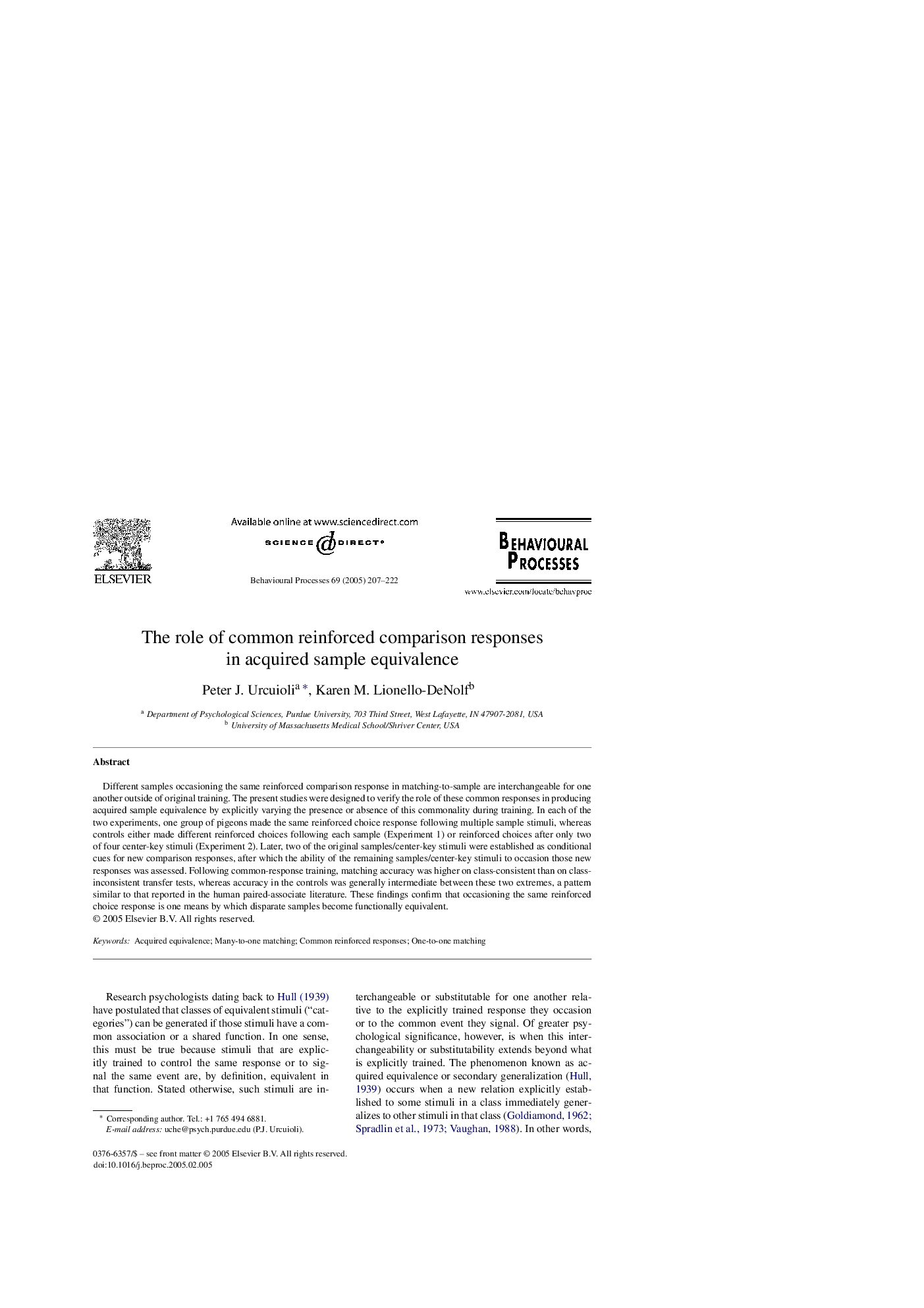| Article ID | Journal | Published Year | Pages | File Type |
|---|---|---|---|---|
| 8977407 | Behavioural Processes | 2005 | 16 Pages |
Abstract
Different samples occasioning the same reinforced comparison response in matching-to-sample are interchangeable for one another outside of original training. The present studies were designed to verify the role of these common responses in producing acquired sample equivalence by explicitly varying the presence or absence of this commonality during training. In each of the two experiments, one group of pigeons made the same reinforced choice response following multiple sample stimuli, whereas controls either made different reinforced choices following each sample (Experiment 1) or reinforced choices after only two of four center-key stimuli (Experiment 2). Later, two of the original samples/center-key stimuli were established as conditional cues for new comparison responses, after which the ability of the remaining samples/center-key stimuli to occasion those new responses was assessed. Following common-response training, matching accuracy was higher on class-consistent than on class-inconsistent transfer tests, whereas accuracy in the controls was generally intermediate between these two extremes, a pattern similar to that reported in the human paired-associate literature. These findings confirm that occasioning the same reinforced choice response is one means by which disparate samples become functionally equivalent.
Related Topics
Life Sciences
Agricultural and Biological Sciences
Animal Science and Zoology
Authors
Peter J. Urcuioli, Karen M. Lionello-DeNolf,
